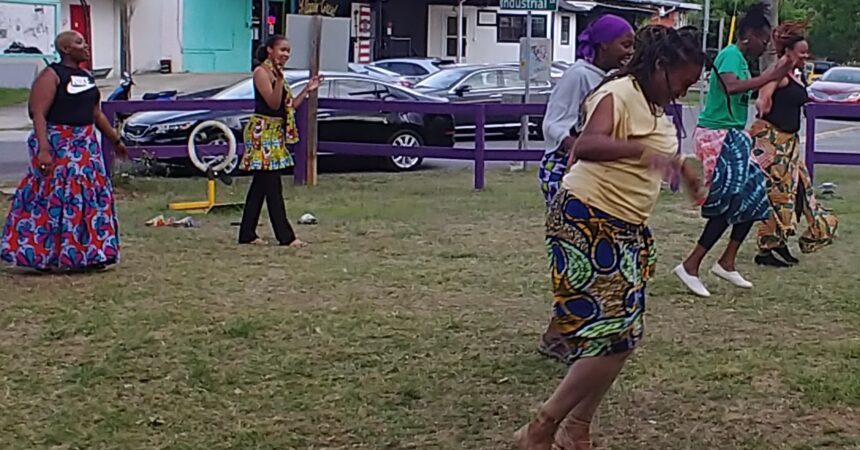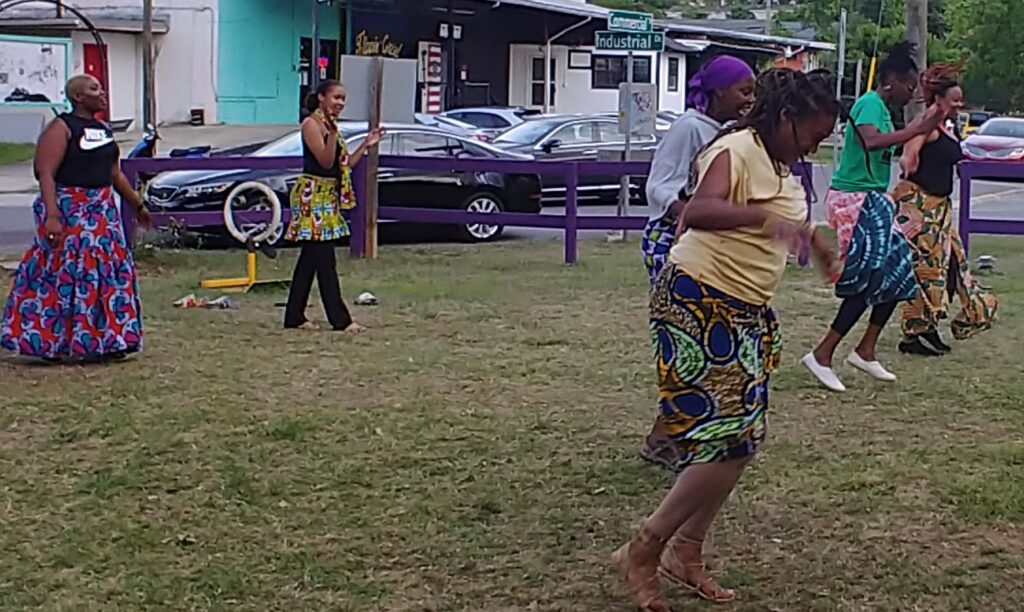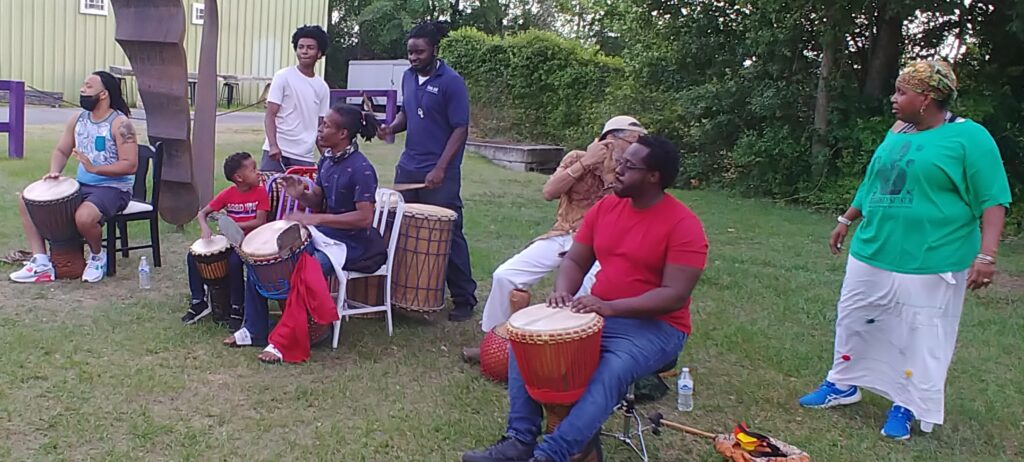
Ayoka Afrikan Drum and Dance finds a way to keep moving to the beat

Photo by St. Clair Murraine

Photo by St. Clair Murraine
By St. Clair Murraine
Outlook staff writer
The sound of the drums was the first telltale sign. Get closer and a group of mostly female dancers could be seen moving to the rhythm.
The moves are distinctively in coordination with the drumbeat, clearly a sign that the latest version of an African dance troupe is sprouting in Tallahassee.
Almost everyone in the group has some connection to the Tallahassee African Caribbean Dance Theatre, which shuttered more than two years ago. The offspring calls themselves Ayoka Afrikan Drum and Dance, Inc., said Brandy Tyler-McIntosh, a former lead instructor with ACDT.
They practice at least three days each week on a grassy area in the back of Railroad Square. There is no roof over the space where they dance so inclement weather usually washes out practice.
Making the decision to keep the African dance movement alive was an easy call, said Tyler-McIntosh, an administrator at Swift Creek Elementary School. There is too much history to do otherwise.
“This has been such a part of our lives and a part of our community here in Tallahassee,” Tyler-McIntosh said. “There is no way we will stop. We will keep it going.
“This is an extension from what we have all known. African dance and drumming has been in this community for a long time since the early 1990s.”
There is still a long way to go to attain the standards that Marcus and Jevelle Robinson set when they operated the ACDT. They took it to new heights when they hosted the Florida African Dance Festival for more than two decades.
They left plenty for the Ayoka group to build on, though. Not only are many of the dancers influenced by what the Robinson’s did, but so are the drummers.
Nzinga Metzger, a FAMU anthropology professor, didn’t dance with the Robinsons but she has an extensive background in African dance. She was one of the first persons that Tyler-McIntosh turned to when the decision was made to keep dancing.
Often she is the one who explains the significance of each dance, whether it’s a celebration or just storytelling in the movements. Every dance is more than just movement, she said.
“When it comes to African people, we’ve always seen music and dance therapeutically,” Metzger said. “So what people do in the clubs, even though the subject matter might not necessarily be the same in terms of people being able to move and interact with each other, it’s pretty much the same thing that people are doing.”
The moves that Metzger passes on to the group obviously generate a pulsating heart rate and sweating. Even if there are moves that seem ordinary, they are made with a sense of purpose.
“We don’t do anything for the sake of doing it,” said Tyler-McIntosh. “Everything has a purpose.”
Coordination with the drums is essential, using breaks to signal starts or stops. Olusegun Samuel Williams, who has more than four decades experience as an African drummer, is the dean of the group that provides the beat.
He’s seen the birth and departure of several dance groups since coming to Tallahassee from Miami in 1987. Williams, who was with ACDT from the beginning, said the Ayoka effort will prevent a total of demise of African dance in the city.
“This is a necessary condition,” he said. “It wouldn’t exist without these few people who have maintained it since ACDT folded. I would like to see it come back because the Florida African Dance Festival was one of the best organized in this country.”







